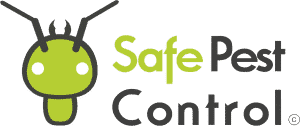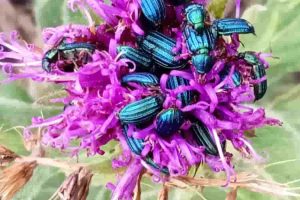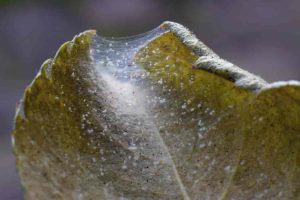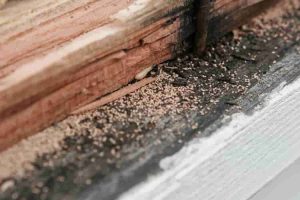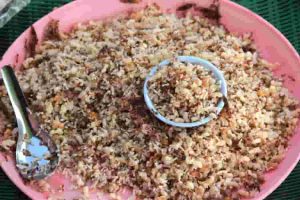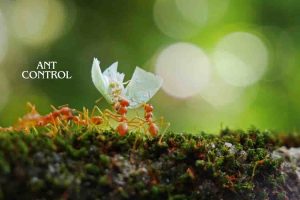Creating a pest-free environment in your backyard might sound challenging, but it’s definitely achievable with the right strategies. By using organic pest control methods and understanding common garden pests, we can maintain a thriving garden without harmful chemicals. This approach not only keeps our plants healthy but also makes our backyard a safe haven for beneficial insects and birds.
To start, we need to ensure our yard provides food, shelter, and water for beneficial creatures. Planting a mix of small to large flowering plants will cater to various pollinators. For instance, having flowers that supply nectar and pollen attracts helpful insects and birds. We should also consider installing a small, shallow pond partly shaded by ground-hugging plants for frogs to breed.
In addition to attracting beneficial species, it’s crucial to implement natural pest control methods. Using solutions like diluted liquid soap to spray foliage can deter many pests like earworms. This keeps our garden safe from harmful invaders and allows our plants to thrive in a balanced ecosystem. For more detailed ideas, check out this guide on pest-proof vegetable gardens.
Understanding Your Backyard Ecosystem
Our backyard ecosystem is a delicate balance of various elements, including pests and beneficial insects. Each component plays a vital role, from identifying common pests to encouraging biodiversity.
Identifying Common Pests
First, let’s identify common pests that can invade our garden. Aphids are small, sap-sucking insects often found on the underside of leaves. Slugs and snails are usually active at night and can be spotted by their slimy trails. Caterpillars munch through vegetable leaves, making holes in them. Whiteflies are tiny white insects that fly around when disturbed. These pests can damage plants, leading to poor growth and yield.
To manage pests, it is essential to regularly inspect plants for any signs of infestation. We can catch the issue early before it escalates, making control easier.
The Role of Beneficial Insects
Beneficial insects are our allies in maintaining a healthy garden. Ladybugs are effective in controlling aphids, as they feed on them. Birds, such as sparrows and wrens, can help reduce caterpillar populations. Bees not only pollinate flowers but also contribute to a vibrant environment.
Butterflies add beauty and help with pollination. Ground beetles and spiders act as natural predators for various pests. By fostering an environment that attracts beneficial insects, we can address pest issues naturally. Planting a variety of flowering plants can provide food and habitats for these helpful creatures.
Natural Habitats and Biodiversity
Creating natural habitats encourages biodiversity and helps maintain a balanced ecosystem. We can do this by planting native wildflowers, which attract a mix of insects and small creatures. Providing birdhouses, bat houses, and pebbles in the garden offers shelter for birds and bats. Adding a water source like a small shallow pond can attract frogs and other beneficial wildlife.
Additionally, we can let certain weeds grow to create a pollinator garden, which supports bees and butterflies. Building rock piles or leaving logs in shaded areas provides homes for insects and small mammals. By enhancing biodiversity, we ensure that our backyard can thrive with less reliance on chemical controls.
Preventive Strategies for a Healthier Garden
Maintaining a garden requires consistent effort. By focusing on yard maintenance, we can deter pests and foster lush, healthy plants.
Proper Yard Maintenance
Keeping our garden clean is crucial. We should regularly remove dead plants, leafy debris, and decaying material to prevent pests from hiding and breeding. Keeping things tidy makes a huge difference.
Using mulch is another essential practice. Mulch helps retain soil moisture, regulate temperature, and reduce weeds. Plus, it improves soil health as it breaks down.
Providing our plants with the right fertilizer ensures vigorous growth. Healthy plants are less likely to be attacked by pests. Composting is an excellent way to create a rich, organic fertilizer that supports robust plant health.
Lastly, mowing the lawn is important. Regular mowing keeps grass healthy and deters pests. We shouldn’t let grass grow too tall as it attracts insects and rodents.
By following these straightforward maintenance practices, we can enjoy a beautiful, pest-free garden.
Natural Pest Control Methods
In creating a pest-free environment in our backyard, we can utilize natural pest control methods that are effective and safe for our family and pets. These methods include using specific plants as repellents, creating physical barriers, and employing natural predators to keep pests at bay.
Using Plants as Repellents
Many plants can act as natural repellents, keeping harmful insects away from our garden. Marigold, lavender, mint, citronella, and lemongrass are examples of plants that repel various pests. Marigolds deter aphids and nematodes. Lavender keeps away moths, fleas, and mosquitoes. Mint repels ants and flies, while citronella and lemongrass are known for driving away mosquitoes.
We can plant these around our garden’s perimeter or near plants that are particularly vulnerable to pests. Companion planting, where certain plants are grown together to support each other’s growth and pest resistance, is a great method. For instance, planting marigolds near tomato plants helps prevent tomato hornworms.
Creating Physical Barriers
Physical barriers are a straightforward way to protect plants from pests. Netting and row covers are common barriers used in gardens. These materials prevent insects and birds from reaching our plants while still allowing sunlight, air, and water to pass through.
Using traps such as sticky traps can catch flying insects like whiteflies and aphids. Diatomaceous earth, a natural powder made from fossilized aquatic organisms, can be sprinkled around plant bases. It dehydrates and kills crawling insects but is safe for humans and pets. We should regularly check and maintain these barriers to ensure they’re effective.
Employing Natural Predators
Introducing natural predators into our garden is another effective pest control strategy. Ladybugs are great for controlling aphids, while spiders can catch a variety of insects. Birds also help by feeding on caterpillars and other pests. Setting up bird feeders and birdbaths can attract insect-eating birds to our garden.
Ground beetles are another beneficial insect, preying on slugs, snails, and other ground-level pests. Creating a habitat that supports these predators involves growing a variety of plants and providing water and shelter. This balanced ecosystem helps control pest populations naturally.
Using these methods can help maintain a healthy, pest-free garden in an environmentally friendly way.
Eco-Friendly Pest Control Products and Practices
In our quest to create a pest-free backyard, it’s crucial to use methods that are kind to the environment. There are many natural solutions and products available that get the job done without relying on harmful chemicals.
Organic Pesticides and Insecticides
Organic pesticides are a great choice for managing pests like aphids, mites, and nematodes. Neem oil is one of the most effective organic insecticides. It disrupts the life cycle of pests and is safe for beneficial insects and plants. Diatomaceous earth is another option; it’s a natural substance that dehydrates and kills insects without harming humans or pets.
Botanical extracts, like pyrethrum, made from chrysanthemum flowers, can help control insects without leaving harmful residues. It’s important to use these products as directed to ensure they are both effective and safe. We should always look for products with biodegradable packaging to minimize our environmental footprint.
Do-It-Yourself Solutions
There are many DIY approaches to eco-friendly pest control that are safe and effective. Soap and water sprays can eliminate aphids and mites by breaking down their protective coating. Dish soap mixed with water works well in small quantities and can be sprayed directly onto the pests.
Vinegar is effective for keeping ants at bay; a mixture of vinegar and water can be sprayed around entry points to deter them. Baking soda can help control pests like cockroaches—just mix it with a bit of sugar as bait. Additionally, creating traps using everyday items like sticky tape for flies or jars for larger pests can reduce populations without chemicals.
Professional Eco-Friendly Pest Control
Sometimes, our own efforts might not be enough, and that’s when a professional pest control company comes in handy. Eco-friendly pest control professionals use methods that are safe for the environment, such as traps and pheromone-based control. These traps are designed to target specific pests without harming other creatures or applying harsh chemicals.
Moreover, professional services often use essential oils as natural deterrents. These oils, such as peppermint and eucalyptus, repel pests while being safe for households. Hiring professionals ensures that eco-friendly practices are effectively implemented, protecting both our backyard and the wider environment.
On-Time Service

5 STAR SERVICE BASED ON 100+ GOOGLE REVIEWS
PET & FAMILY FRIENDLY TREATMENT

ALL YEAR-ROUND PROTECTION
Take Back Control Now
8
REASON TO CHOOSE SAFE PEST CONTROL
- Guarantee protection all year-round
- 30 Years Collective Experience
- An impeccable reputation across Sydney's Suburbs
- Certified treatments & written Warranty On all work carried out
- Family Owned & Operated
- Rated #1 Pest Control In Sydney NSW
- No Mess, No Smell
- Family & Pet Friendly Treatments
REQUEST A QUOTE
